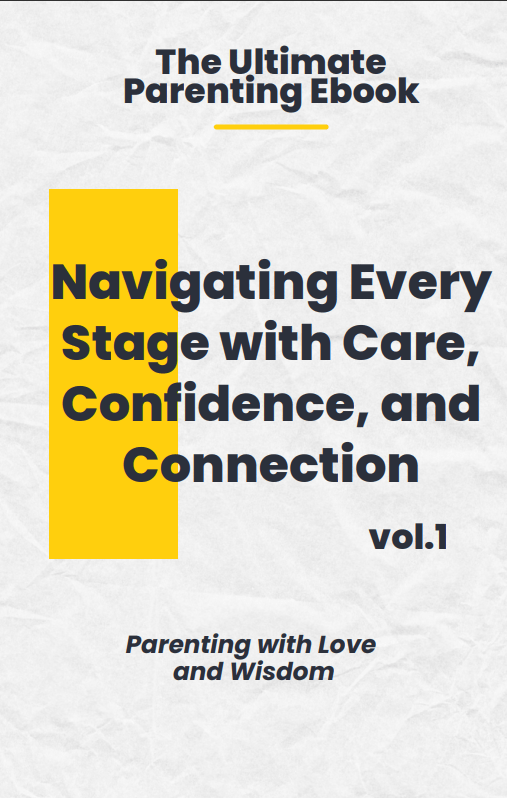Empower your child for a bright future. Learn how early childhood social-emotional development lays the groundwork for lifelong success.

In the parenting journey, one aspect often stands out as a cornerstone for future success: early childhood social-emotional development. This pivotal phase lays the groundwork for a child’s lifelong journey, shaping their interactions, relationships, and resilience in the face of challenges. Early childhood social-emotional development encompasses understanding and managing emotions, forming meaningful connections with others, and navigating various social situations effectively. It’s about more than just being able to share toys or take turns; it’s about building the foundation for healthy relationships, academic achievement, and overall well-being. Let’s explore how nurturing early childhood social-emotional development sets the stage for a bright and fulfilling future.
In This Blog
Toggle1. The Impact on Academic Achievement

A. Research Findings: Linking Early Social-Emotional Skills to Academic Success
Research consistently highlights the profound impact of early childhood social-emotional development on academic achievement. Here are some key findings:
- Improved Cognitive Functioning: Children with strong social-emotional skills demonstrate better cognitive abilities, including problem-solving and critical thinking.
- Enhanced School Readiness: Early social-emotional development prepares children for the structured learning environment of early childhood education settings.
- Higher Academic Performance: Studies show a positive correlation between social-emotional competence in preschool years and academic success in later grades.
B. Emotional Regulation and Classroom Engagement
Emotional regulation and social skills play a crucial role in a child’s ability to engage effectively in the classroom and optimize learning experiences. Consider the following points:
- Enhanced Focus and Attention: Children who can regulate their emotions are better equipped to focus on tasks and absorb new information during lessons.
- Positive Peer Interactions: Socially adept children are more likely to participate in group activities, collaborate with peers, and contribute positively to classroom discussions.
- Reduced Behavioral Issues: Effective emotional regulation fosters a conducive learning environment by minimizing disruptions and promoting a sense of community among classmates.
In essence, early social-emotional development lays the groundwork for academic success by equipping children with the essential skills and attitudes needed to thrive in early childhood education settings and beyond. As parents, nurturing these skills in our children from a young age sets them on a path toward fulfilling their potential academically and socially.
2. Nurturing Healthy Relationships

A. The Role of Early Social-Emotional Development in Relationships
Early social-emotional development lays the foundation for forming and maintaining healthy relationships throughout life. Here’s how it impacts relationship dynamics:
- Empathy and Understanding: Children who develop empathy early on are better able to understand and relate to the feelings of others, fostering deeper connections.
- Communication Skills: Effective communication is key to building strong relationships. Children who develop language and social skills in the toddler age range are better equipped to express themselves and connect with others.
- Conflict Resolution: Managing emotions and resolving conflicts peacefully is essential for maintaining positive relationships. Early social-emotional development teaches children how to navigate disagreements and find mutually beneficial solutions.
B. Strategies for Supporting Positive Social Interactions and Empathy Development
As parents and caregivers, there are various ways we can nurture healthy relationships and empathy in young children:
- Lead by Example: Demonstrate empathy and kindness in your own interactions with others, serving as a role model for your child to emulate.
- Encourage Perspective-Taking: Help your child understand different points of view by discussing feelings and perspectives in everyday situations.
- Promote Cooperative Play: Encourage your child to engage in cooperative play with peers, where they learn to take turns, share, and collaborate towards common goals.
- Teach Conflict Resolution Skills: Guide your child through conflicts by helping them identify emotions, brainstorm solutions, and negotiate compromises.
- Foster Empathy Through Storytelling: Read books or watch shows that highlight characters’ emotions and perspectives, sparking discussions about empathy and understanding.
By prioritizing early childhood social-emotional development and implementing these strategies, parents and caregivers can play a crucial role in nurturing healthy relationships and empathy in their children, setting them up for success in their social interactions and relationships.
3. Building Resilience and Coping Skills

A. Fostering Resilience Through Early Childhood Social-Emotional Development
Early childhood social-emotional development is crucial fostering resilience, allowing children to bounce back from challenges and setbacks. Here’s how it helps:
- Emotional Regulation: Developing the ability to identify and manage emotions equips children with essential coping skills, enabling them to navigate difficult situations more effectively.
- Problem-Solving Skills: By encouraging problem-solving and critical thinking from a young age, children learn to approach challenges with a positive mindset, viewing them as opportunities for growth rather than obstacles.
- Positive Relationships: Strong social connections provide a support system for children, offering encouragement and comfort during tough times.
B. Tips for Developing Coping Strategies and Adaptability
As parents and caregivers, there are several strategies we can employ to help children build resilience and coping skills:
- Encourage Open Communication: Create a safe space for children to express their feelings and concerns openly, validating their emotions and offering support.
- Teach Relaxation Techniques: Introduce relaxation techniques such as deep breathing or mindfulness exercises to help children manage stress and anxiety.
- Promote Problem-Solving: Encourage children to brainstorm solutions to challenges they encounter, empowering them to take ownership of their problems and find creative ways to overcome them.
- Model Positive Coping Behaviors: Demonstrate healthy coping mechanisms in your own reactions to stress, showing children that it’s okay to ask for help and seek support when needed.
- Provide Opportunities for Growth: Encourage children to step out of their comfort zones and try new things, fostering adaptability and resilience in the face of change.
By prioritizing early childhood social-emotional development and implementing these tips, parents can empower their children to build resilience, cope effectively with challenges, and thrive in the face of adversity.
4. Long-Term Implications for Future Success
A. The Impact of Early Childhood Social-Emotional Development
Early childhood social-emotional development sets the stage for lifelong outcomes, influencing various aspects of a child’s future success. Consider the following implications:
- Academic Achievement: Children who develop strong social-emotional skills in early childhood are better equipped to excel academically, as they possess the necessary self-regulation and interpersonal abilities to navigate the challenges of learning environments.
- Relationship Building: Social-emotional competence fosters healthy relationships throughout life, leading to greater success in personal and professional interactions. Individuals with well-developed social skills are more likely to form meaningful connections, collaborate effectively, and thrive in diverse social settings.
- Emotional Well-Being: Early social-emotional development lays the groundwork for emotional resilience and well-being, empowering individuals to cope with stress, manage adversity, and maintain a positive outlook on life.
B. Investing in Social-Emotional Skills During the Formative Years
Investing in social-emotional skills during the formative years of early childhood is crucial for long-term success and well-being. Here’s why:
- Foundation for Success: Social-emotional skills serve as a foundation for future learning and development, providing children with the tools they need to navigate the complexities of life with confidence and resilience.
- Positive Discipline Approach: Positive discipline techniques, which emphasize nurturing relationships and teaching self-regulation, are instrumental in promoting social-emotional growth and fostering a supportive learning environment for preschoolers.
- Preparation for Adulthood: By prioritizing social-emotional development in early childhood, parents and caregivers prepare children for the challenges and opportunities they will encounter in adulthood, equipping them with essential life skills for success.
Investing in early childhood social-emotional development is not only beneficial for individual children but also contributes to the overall well-being and prosperity of society as a whole. By recognizing the importance of social-emotional skills and supporting their development in the early years, parents and caregivers lay the foundation for a brighter and more promising future for their children.
Conclusion
In reflecting on the significance of early childhood social-emotional development, it becomes evident that these formative years play a crucial role in shaping a child’s future trajectory. From building strong relationships to fostering resilience in the face of challenges, these skills serve as the bedrock for success in various facets of life. As parents, educators, and caregivers, prioritizing experiences such as early education and outdoor preschool opportunities lays the groundwork for nurturing these essential skills in preschoolers. By investing in their social-emotional development, we equip our children with the tools they need to navigate the complexities of the world with confidence and resilience, setting them on a path toward a bright and fulfilling future.
You may also be interested in : 7 Game-Changing Parenting Tips for Preschoolers
FAQs
1. What is early childhood social-emotional development?
Early childhood social-emotional development refers to the process through which children acquire and refine skills related to understanding and managing emotions, forming relationships, and navigating social situations effectively.
2. Why is early childhood social-emotional development important?
Early childhood social-emotional development lays the foundation for a child’s overall well-being and success in various areas of life, including academics, relationships, and mental health.
3. How can parents support their child’s social-emotional development?
Parents can support their child’s social-emotional development by providing a nurturing and supportive environment, modeling positive behaviors, and offering opportunities for social interaction and emotional expression.
4. What role does early education play in social-emotional development?
Early education, including preschool programs, can play a significant role in promoting social-emotional development by providing structured environments where children can learn and practice important skills such as cooperation, empathy, and conflict resolution.
5. Are there any warning signs of social-emotional difficulties in young children?
Some potential warning signs of social-emotional difficulties in young children include persistent tantrums or meltdowns, difficulty forming friendships, excessive shyness or withdrawal, and aggressive behavior toward others. Parents need to seek guidance from healthcare professionals if they have concerns about their child’s social-emotional development.




